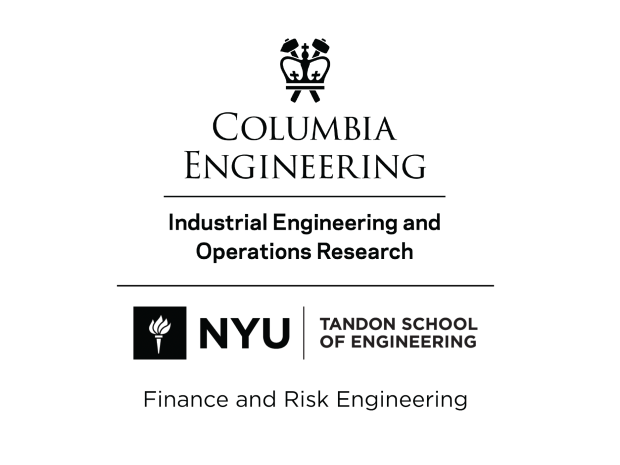Columbia & NYU Financial Engineering Colloquium: Dan Lacker & Anis Matoussi

Registration is required for non-NYU guests.
Dan Lacker
Columbia University
Title
Approximate Independence of High-Dimensional Diffusions
Abstract
When and how well can a high-dimensional system of stochastic differential equations be approximated by one with independent coordinates? This fundamental question is at the heart of the theory of mean field limits and the propagation of chaos phenomenon. This talk will present recent sharp quantitative answers to this question, both for classical mean field models and for more recent non-exchangeable extensions. Two high-level ideas underlie these answers. The first is a "local" perspective, in which low-dimensional marginals are estimated iteratively by adding one coordinate at a time, and here first-passage percolation makes a surprise appearance. The second is a non-asymptotic construction called the independent projection, which is a general and natural way to approximate a system of SDEs by one with independent coordinates.
Bio
Daniel is an associate professor in the Department of Industrial Engineering and Operations Research at Columbia University. He was an NSF postdoctoral fellow in the Division of Applied Mathematics at Brown University from 2015 to 2017. Prior to that, he received his Ph.D. from Princeton University in 2015 and his B.S. from Carnegie Mellon University in 2010. He is a recipient of an Alfred P Sloan Fellowship, an NSF CAREER award, and a SIAG-FME early career prize. Daniel's primary research areas are mean field games and interacting particle systems, which form the mathematical foundation for a wide range of models of large-scale interactions arising in physics, engineering, economics, and finance.
Anis Matoussi
Le Mans University
Title
Some Results on Dynamic Preferences within the Scope of Forward Utilities: Theory and Numerical Approximation
Abstract
My talk will focus on the presentation of some theoretical and numerical tools for adaptive decision-making in uncertain environments, within the scope of forward utilities. We investigate an investment-consumption optimization problem in both the many player and mean-field settings, under the framework of forward utilities with relative performance concerns and non-zero volatility. We will also provide numerical examples. If time permits, I will also present numerical methods for forward utilities in a stochastic factor model (for both standard and regime-switching models), using their representation with ergodic backward stochastic differential equations (eBSDEs).
Bio
Anis is a Professor at the Risk and Insurance Institute, Le Mans University (France). He was a postdoctoral researcher at the Technical University of Berlin in the Stochastic Analysis and Financial Mathematics team from 1999 to 2001. He is a co-founder of the Institute of Risk and Insurance, established over 10 years ago in collaboration with researchers in economics. Currently, he serves as the director of the Institute and its School of Actuarial Science. Anis's main research focuses on stochastic control and game theory, backward stochastic differential equations (BSDEs) with applications in finance and risk (both theoretical and numerical computations), dynamic preferences, and stochastic partial differential equations (SPDEs).

